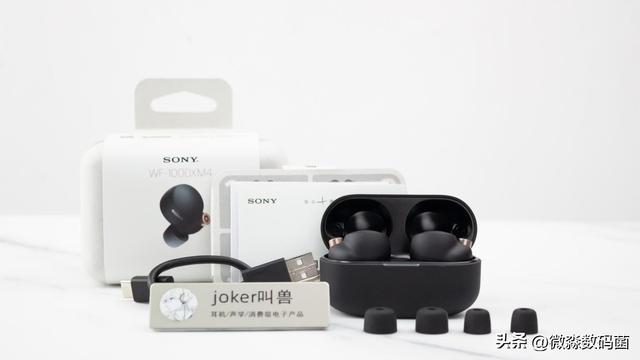杨利伟探索地球(26秒濒死瞬间神秘敲击声)
近日,有网友发现人教版七年级下册语文书中有篇课文名为《太空一日》,作者正是我国首位航天员杨利伟。因教材是近几年新修订的,不少人都没学过。6月26日,文章被发到网上后,仅数小时转发上万!人们从中读出了航天人用生命追星逐月的勇敢,更被惊心动魄的细节深深震撼。

图片来源:新华网
Recently, an article written by China's first taikonaut, Yang Liwei describing his one day in space, triggered numerous discussions on social media platforms, with many saluting Yang's heroic spirit and marveling at the country's significant advancement in space technology.
最近,中国首位航天员杨利伟记述自己太空一日的文章引发了社交媒体上的热议。许多网友向杨利伟的英雄气概致敬,并惊叹于中国在太空技术上所取得的巨大进步。

新浪微博截图
Entitled, One Day in Space, Yang's article was recently included in the seventh-grade textbook in Chinese middle schools, and it was posted on Sina Weibo on Saturday, drawing tens of thousands of views within the first few hours. Many Weibo users were astonished at Yang's courage. "As the first person to go into space and live through so many unknowns, he must have a great will," said one netizen.
杨利伟这篇题为《太空一日》的文章前不久被收录进了国内中学七年级课本,6月26日在新浪微博上传后仅数小时阅读量就突破数十万。许多微博用户都被杨利伟的勇敢所震撼。一名网友写道:“他是去往太空第一人啊,经历了这么多未知数,意念真得很强大了。”

新浪微博截图
"In the documentary, the staff on the ground monitoring his heart rate, said that it didn't change when he took off. He had such a powerful mind. There was a lot to take on, being the first one," said another Weibo user.
另一位微博用户写道:“看纪录片是,地面人员当时监控他的心率说,他起飞时心率没变,还说他的心理强大,选对人了,第一次真的承受很多。”
新浪微博截图
Yang was 38 when he became the first Chinese person to go into space on the Shenzhou V, on Oct 15, 2003, making China the third country — after the US and Russia — to master manned space capabilities.
2003年10月15日,乘坐神舟五号飞船的杨利伟成为第一个进入太空的中国人,那一年,他38岁。这使得中国成为继美国和俄罗斯之后第三个掌握载人飞船技术的国家。
In his article, Yang recalled several breathtaking moments when he thought he would not make it back alive. "When the rocket lifted to a height about 30-40 kilometers above the ground, I felt it begin to vibrate violently, and it was extremely painful," he said.
在他的文章中,杨利伟回忆起以为自己要牺牲的几个惊魂瞬间。他写道:“火箭上升到三四十公里的高度时,火箭和飞船开始急剧抖动,产生共振。这让我感到非常痛苦。”
Vibrations in the spacecraft below 10 Hz can damage the internal organs, and even threaten a person's life, Yang explained.
杨利伟解释道,10赫兹以下的低频振动会引起人的内脏共振,甚至会危及一个人的生命。
"Then an incident happened. The fierce vibrations felt like they were shattering my body, and the pain had grown unbearable. I thought I was going to die," Yang recalled.
杨利伟回忆道:“意外出现了。共振以曲线的形式变化着,痛苦的感觉越来越强烈,五脏六腑似乎都要碎了。我几乎无法承受,觉得自己快不行了。”
The near-deadly moment lasted for 26 seconds. When it was finally over, the taikonaut, all alone in the vastness of space, felt like he had been reborn.
这个濒临死亡的瞬间持续了26秒。当痛苦终于过去后,茫茫宇宙中孤身一人的杨利伟感觉自己重生了。
When ground control finally saw Yang blink his eyes through the surveillance camera, his colleagues burst out crying, "He's blinking! Yang is alive!"
当地面控制人员通过监控摄像头终于看见杨利伟眨眼时,同事们忍不住喊出了声:“他眨眼了!利伟还活着!”

图片来源:中国日报
In the article, Yang also described "mysterious knocking sounds" from outside the craft. He still does not know where they came from. He also described what the Earth, his country, and his city looked like from space. "I flew over Beijing and saw the mountains in daytime and sparkling lights at night. And there live my comrades and my loved ones."
在文章中,杨利伟还描述了船舱外“神秘的敲击声”。他至今仍不知道声音是从哪来的。杨利伟还描述了地球、中国以及自己居住的城市从太空中看起来是什么样子。“我曾俯瞰我们的首都北京,白天它是燕山山脉边的一片灰白,分辨不清,夜晚则呈现一片红晕,那里有我的战友和亲人。”
Yang shared another interesting experience in the article. After several attempts from his cabin, he could not see the Great Wall, which many believed was the only manmade structure on Earth that could be seen from space. "The Shenzhou VI and VII taikonauts couldn't see it either," Yang wrote.
杨利伟还在文章中分享了另一段有趣的经历。许多人认为航天员在太空唯一能看到的建筑就是长城。但是杨利伟在飞船内尝试了几次后,仍然看不到长城。杨利伟写道,神舟六号和神舟七号的航天员也没看到长城。
After his return, Yang reported the abnormal vibrations during the rocket's ascent to fellow scientists, who solved the issue before the Shenzhou VI's launch. According to Nie Haisheng, who took the Shenzhou VI craft to space in 2005, his first trip to space was much smoother, and he did not detect any vibrations.
在飞行回来后,杨利伟向共事的科学家汇报了火箭上升过程中的异常振动,后来科学家在神舟六号飞行前解决了这个问题。2005年乘坐神舟六号飞船进入太空的聂海胜说,他的首次太空之旅要顺利得多,几乎感觉不到振动。
In the following years, a number of new technologies have also been applied to the core cabin, including space Wi-Fi, Bluetooth, smart home applications, private phone communications, and a variety of over 120 kinds of space foods.
此后数年,核心舱应用了一系列新技术,包括太空WiFi、蓝牙、智能家电、私人语音沟通和120多种太空食物。
Eighteen years after his first trip to space, Yang said with a smile that he "envied" a lot that his fellow spacemen who now have such comfortable space accomodations, which show how China's space program has grown.
在首次太空之旅过去18年后,杨利伟笑着说,他很羡慕现在的航天员有这么舒适的“太空之家”,这也展示出中国航天工程的巨大飞跃。

图片来源:新华社
最后来看看杨利伟《太空一日》的全文:







来源:CHINADAILY微信公众号
翻译&编辑:丹妮、焦洁、商桢
来源:中国日报网
,免责声明:本文仅代表文章作者的个人观点,与本站无关。其原创性、真实性以及文中陈述文字和内容未经本站证实,对本文以及其中全部或者部分内容文字的真实性、完整性和原创性本站不作任何保证或承诺,请读者仅作参考,并自行核实相关内容。文章投诉邮箱:anhduc.ph@yahoo.com






